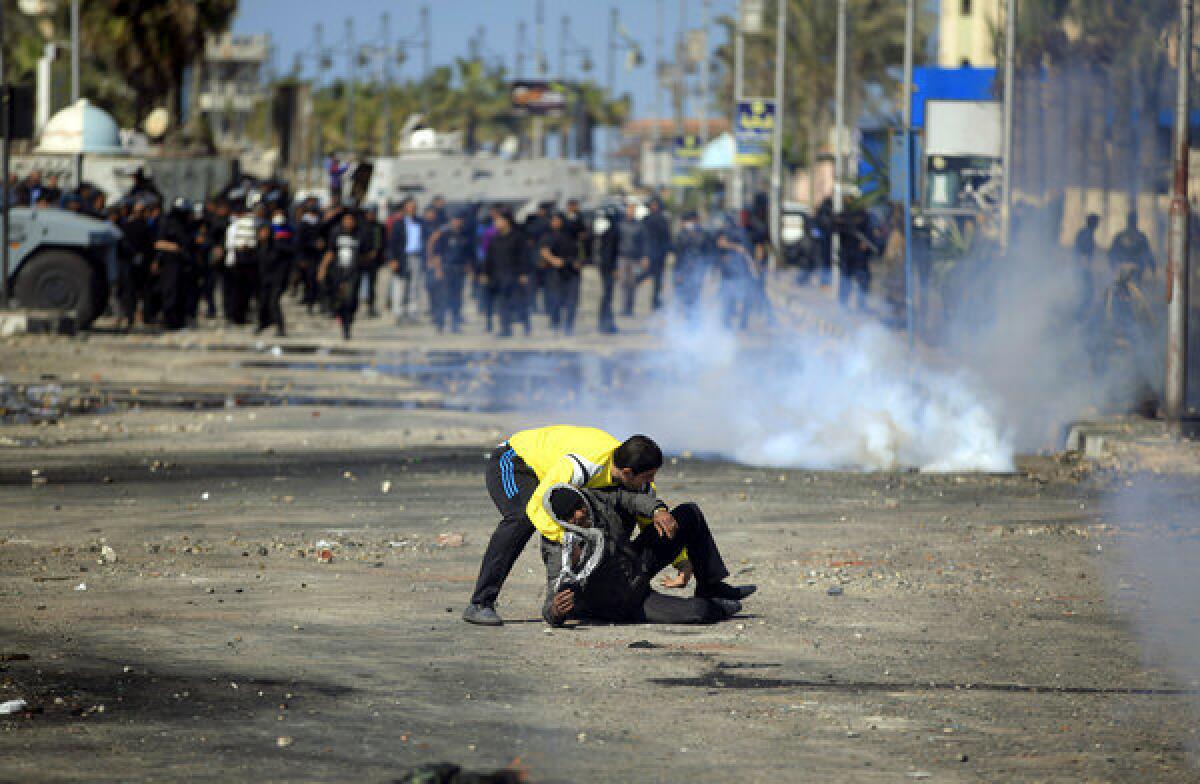Egyptian judge suspends upcoming elections as disarray deepens

- Share via
TRIPOLI, Libya — Egypt slipped further into political disarray Wednesday when a judge suspended upcoming parliamentary elections and referred the country’s much-criticized electoral law to the highest court.
An administrative judge struck down a decree by Islamist President Mohamed Morsi to hold staggered elections for a lower house of parliament slated to begin April 22. The court, citing concerns over the recently amended electoral charter, asked Egypt’s Supreme Constitutional Court to review the law.
The ruling appeared likely to delay the elections and highlighted the struggle between Morsi and the largely secular opposition. The opposition has vowed to boycott the poll amid accusations the electoral law favors Islamists. It also said elections should not be held while Egypt is gripped by deadly protests and deepening political rancor.
The Supreme Constitutional Court in February found that provisions in the electoral law were unconstitutional. The upper house of parliament, which is controlled by Islamists, amended the text and passed it onto Morsi, who approved it. The administrative court ruled Wednesday the upper house should have returned the law to the Constitutional Court for review.
A Morsi spokesman told Egyptian media the president will appeal the decision on the grounds that the executive decree cannot be overturned by a judge. The spokesman said, however, that the upper house should have sent the revised law back to the high court.
The legal maneuvering comes amid weeks of protests and civil disobedience, most notably in the city of Port Said along the Suez Canal. Six people, including three policemen, have died in clashes there over the past week. That furor is heightened by the government’s failure to rescue a beleaguered economy marred by plunging foreign reserves.
“The people want to overthrow the regime,” has become the protest mantra in Cairo, Alexandria and across much of the Nile delta.
Morsi has blamed the opposition for instigating demonstrations to mask its inability to win elections against better organized Islamists. But months of unrest and stalled politics have strained the credibility of the president. Many Egyptians are hostile toward the government but are just as embittered by an opposition that lacks a unifying message.
Morsi has pressed for parliamentary elections to advance the political transition two years after the overthrow of secular autocrat Hosni Mubarak. A new legislature was seen as necessary to securing a $4.8-billion loan from the International Monetary Fund. The president’s critics, however, said the Brotherhood is seeking the exploit the country’s chaos to give Islamists, who already dominate the government, control of the parliament.
ALSO:
Number of Syrian refugees tops 1 million, U.N. says
American bid for more openness at Vatican is quashed
Bolshoi Ballet dancer, 2 others confess to acid attack, police say
More to Read
Sign up for Essential California
The most important California stories and recommendations in your inbox every morning.
You may occasionally receive promotional content from the Los Angeles Times.














